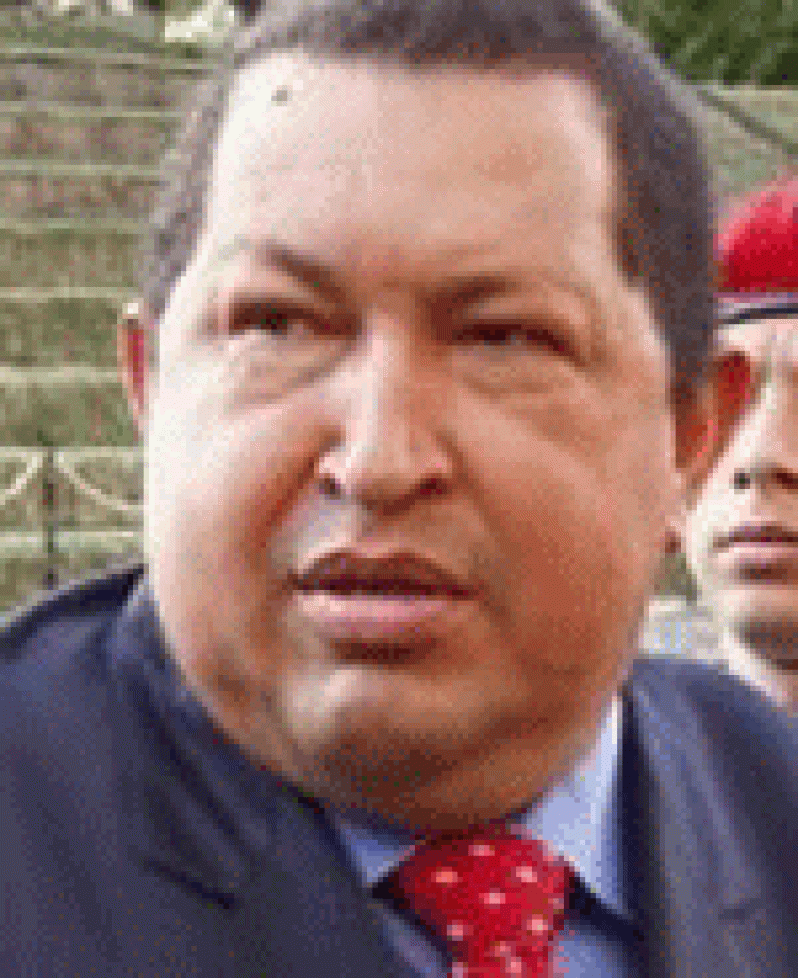SIX-and-a-half years ago, an historic accord was signed between Venezuela and various member states of the Caribbean Community (CARICOM) for the inauguration of an energy-based cooperation venture known as ‘PetroCaribe’.
 It was to unfold across this Region and beyond as manifestation of President Hugo Chavez’s vision of a unique form of cooperation to assist the vulnerable economies of signatory partners to cope with stressful socio-economic challenges resulting from ever-rising oil prices.
It was to unfold across this Region and beyond as manifestation of President Hugo Chavez’s vision of a unique form of cooperation to assist the vulnerable economies of signatory partners to cope with stressful socio-economic challenges resulting from ever-rising oil prices.
Jamaica was to emerge as perhaps the single biggest beneficiary of the PetroCaribe project. But from Kingston to Georgetown, in Guyana, and across countries of the Organisation of Eastern Caribbean States (OECS), there are examples of how the Chavez-led initiative has helped to cushion the economic burden, more notably in St. Vincent and the Grenadines, and Dominica.
Subsequently, Trinidad and Tobago, which has the highest profile in our 15-member Community in intra-regional trade and investment, had inaugurated its CARICOM Petroleum Fund, under then Prime Minister, Patrick Manning, to help Community partners in overcoming some of their economic problems, in addition to its involvement in a Regional Development Fund operated through the Caribbean Development Bank (CDB).
Now, while T&T’s Finance Minister, Larry Howai is pursuing arrangements for reductions in State contributions to both the Petroleum Fund and the Regional Development Fund, Venezuela’s State-owned oil corporation, PDVSA, has recently been involved in fine-tuning proposals for a more integrated and beneficial PetroCaribe project, expanded to also include states in the ALBA group.
ALBA, acronym for the Chavez-led ‘Bolivarian Alternative for Latin America’s Development’, currently comprises some Central American and Caribbean countries. The precise nature of the proposed expansion, and more integrated PetroCaribe programme will be for consideration this weekend at a two-day summit of Heads of State and Government of CELAC (Community of Latin America and Caribbean) nations that got underway yesterday in Santiago, Chile.
The ECLAC Summit will be preceded by a meeting with representatives of the European Union (EU), which has long been a valued trade and development partner of the Latin American/Caribbean Region.
Exclusive Economic Zone
A core feature of the revised PetroCaribe project is the proposal for creating an “exclusive economic zone” (EEZ). Basically, the intention is to transform PetroCaribe, which currently involves most CARICOM countries, from largely an oil-exchange trading accord, which has been quite helpful to their economies, to an economically-integrated multilateral project involving also member nations of ALBA.
The initiative for this PetroCaribe/ALBA cooperation — both originating with the Venezuelan President — resulted from a joint meeting in Caracas earlier this month of government representatives, who were there to demonstrate solidarity with the Venezuelan government and people anxious for the recovery of their Head of State from complex cancer-related operations in Cuba.
While most CARICOM PetroCaribe beneficiary countries are not currently members of ALBA, a few are yet to consider accessing either membership of ALBA and/or the PetroCaribe project. More significantly among these would be Barbados and Trinidad and Tobago — the latter being CARICOM’s sole oil and gas exporter.
The proposals circulated for the PetroCaribe exclusive economic zone includes two modes of direct multiple participation by means of “productive connection among countries,” according to the President of Venezuela’s oil company.
This latest initiative by the Venezuelan government is expected to be among issues for wider consideration by the CELAC representatives gathering in the Chilean capital for their summit that will be preceded by a working session with representatives of the EU.
The draft “Declaration of Santiago” for adoption at this weekend’s CELAC/EU meeting has noted that for the first time, Latin America and the Caribbean would be gathering for “the bi-regional dialogue at the highest level within the framework of CELAC, the representative mechanism of this Region that shall promote its interests and objectives on integration and development…”
Further, the ‘Declaration’ recalled previous EU/LAC summits that “have served to strengthen the bi-Regional dialogue on issues of common interest and we note CELAC’s will to uphold dialogue with the EU, expressed in its decisions at the highest levels…”
The Summit leaders envisage concluding their dialogue today on a high note of expectations for deepening commitment to “strengthening Latin American/Caribbean investment Facility; to improve integration; energy and transport infrastructures; as well as promoting sustainable development through stronger social services.”




.jpg)








